The House of Bangy Cunt
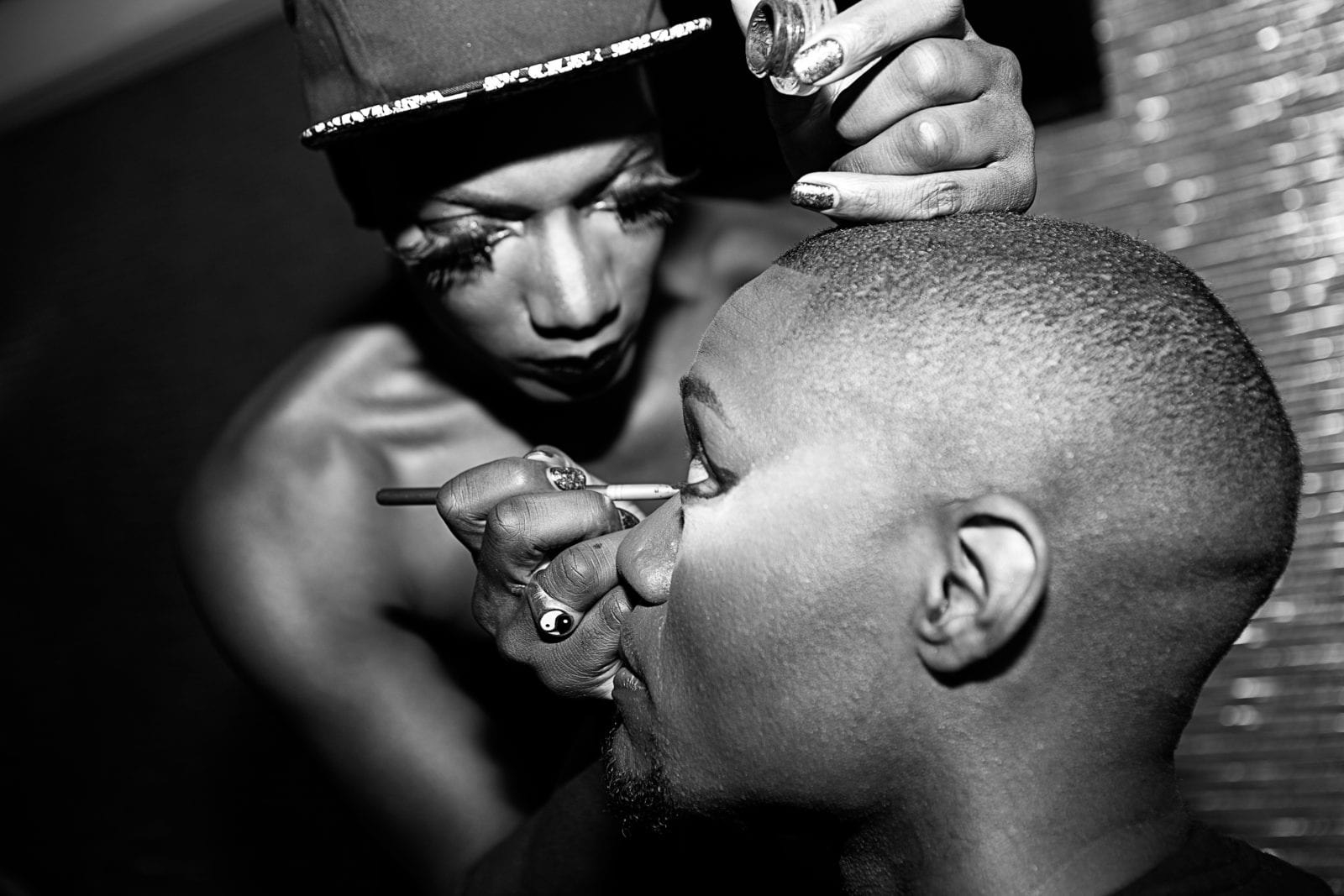
A performer prepares for their battle.
The competitive prize-winning aspect of ballroom gives participants a sense of worth lacking in a world where they have been rejected. Kiki ballroom not only accepts the youngsters for who they are, it celebrates them, in a variety of unique and different categories. Every year, thousands of LGBTQ teens are forced to leave their homes.
Traumatized, isolated and abandoned, many of these teens and young adults set out in search of New York City’s legendary ‘Kiki’ scene, a close-knit community of mostly Black and Latinx LGBTQ youth, some as young as 13 years old. Though data is sparse, studies have found that when gay teens come out to their families, about a quarter are kicked out and a third are assaulted by parents or caregivers.
The underground Kiki Ballroom scene in New York City is a community organized by LGBTQ youth (14-25 years) of color, many of whom were cast out by their families and communities.
A Kiki house functions as a surrogate family, collectively empowering and educating their members.
The underground Kiki Ballroom scene in New York City is a community organized by LGBTQ youth (14-25 years) of color, many of whom were cast out by their families and communities.
A Kiki house functions as a surrogate family, collectively empowering and educating their members.
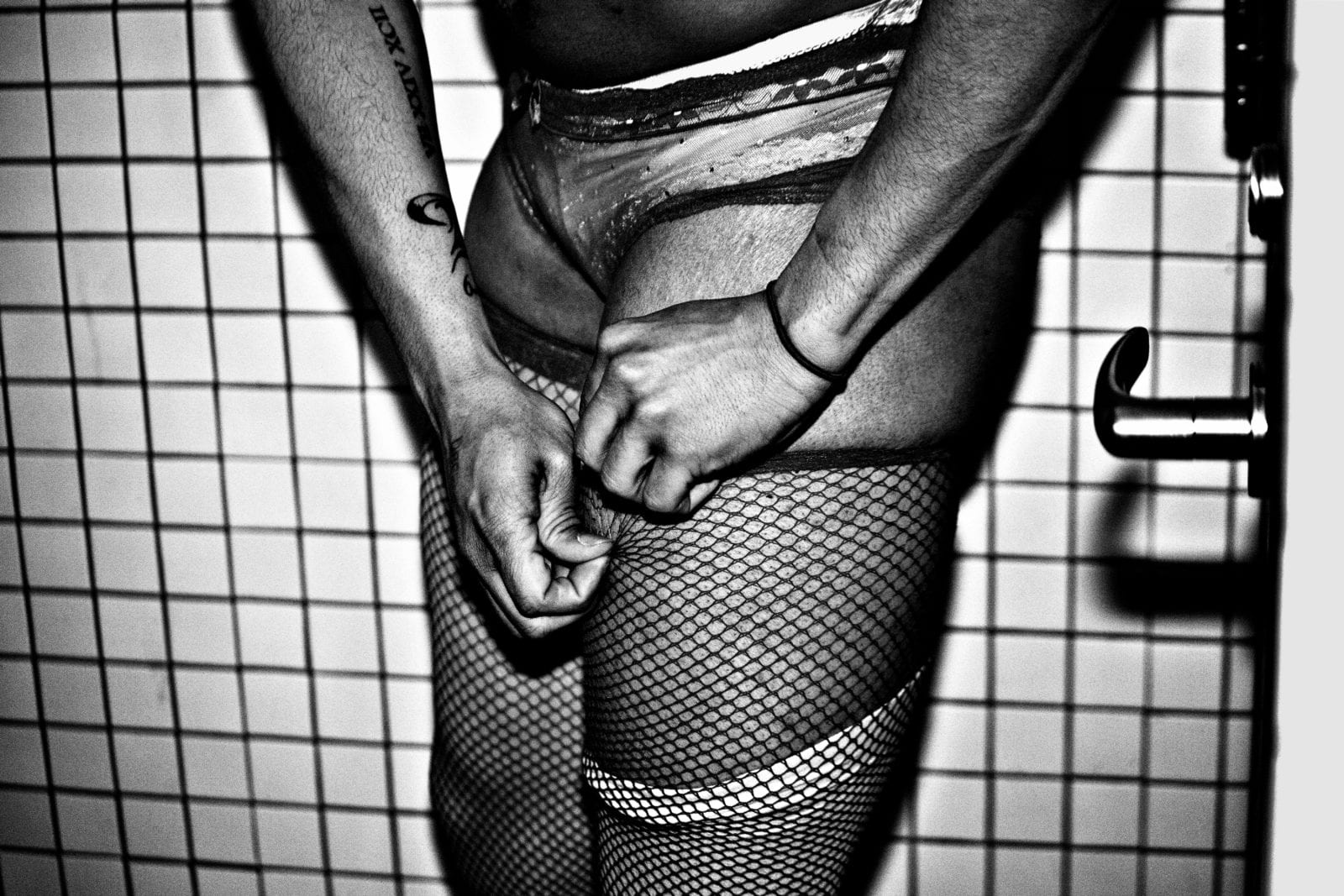
Twiggy Pucci Garcon (front) and Jahlove get ready at the Rainbow Fashion Show. Within the Kiki scene, ‘Houses’ are organized in a family structure, each led by a ‘mother’ and ‘father.’ Members referring to one another as siblings.‘The Ballroom community is centered in family,’ says Twiggy. ‘My long-time sister is ALWAYS ready to beat my mug, lol.’
Twiggy is an artist and activist. Like many LBGTQ youth, he found the Kiki scene after being ostracized from his own community. ‘I grew up in a church where it was not okay to be who I am,’ he says. ‘When you have so many of life’s necessary institutions, [saying] our lives hold no value, you start to believe it. Today, I’m thankful for mentors and chosen family.’
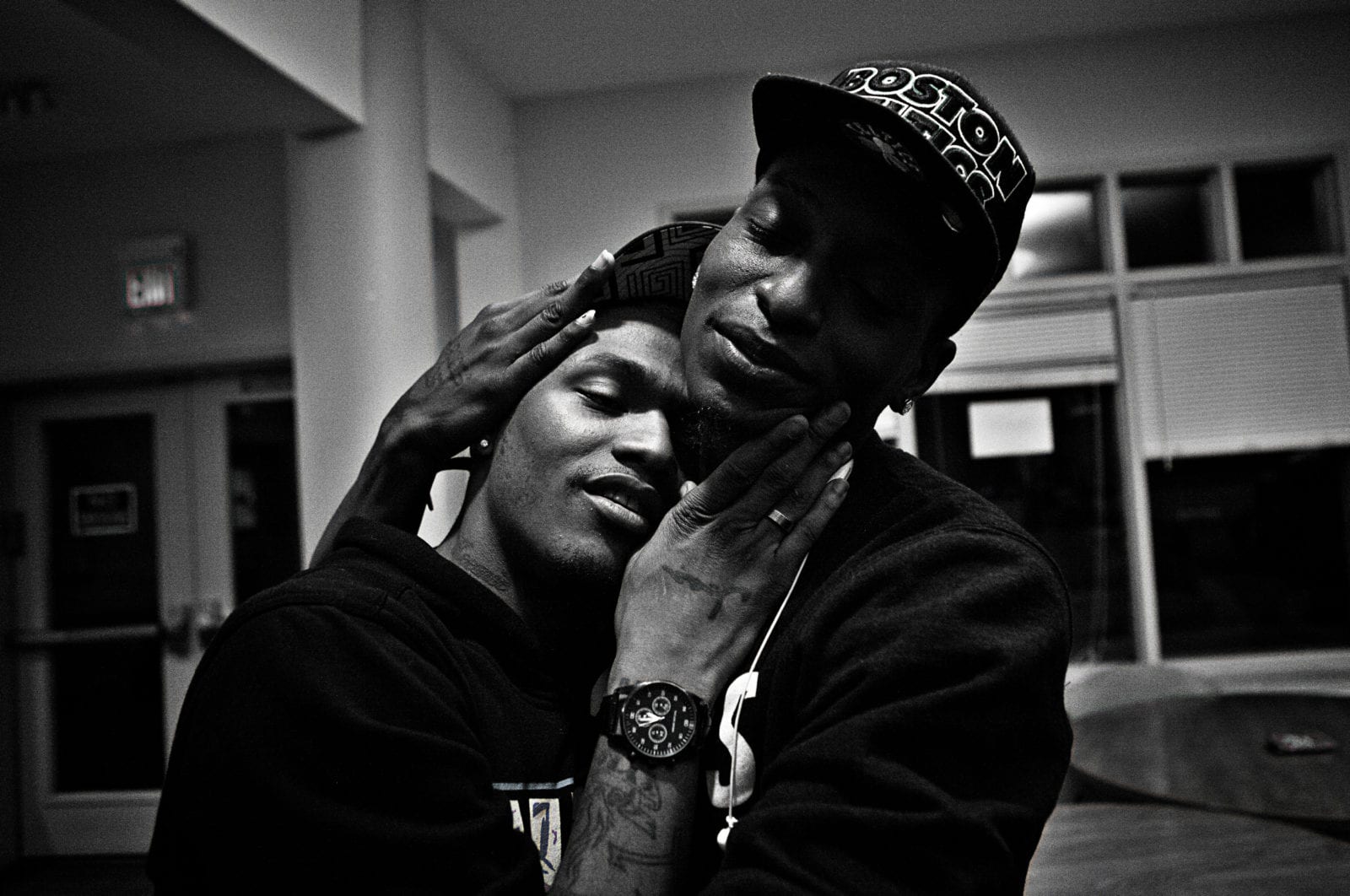
Legendary DaeDae (left) with his brother Dutch Gotti. DaeDae is a member of the House of Bangy Cunt. House names have special significance. The House of Bangy Cunt, for example, was named so because in the Kiki scene, the word ‘cunt’ is an expression of femininity and high praise.
DaeDae was father of the House of Bangy Cunt, as well as photographer’s Anja Matthes godson. He passed away two years ago. Nearly 50% of the youth in the Kiki community are HIV positive.
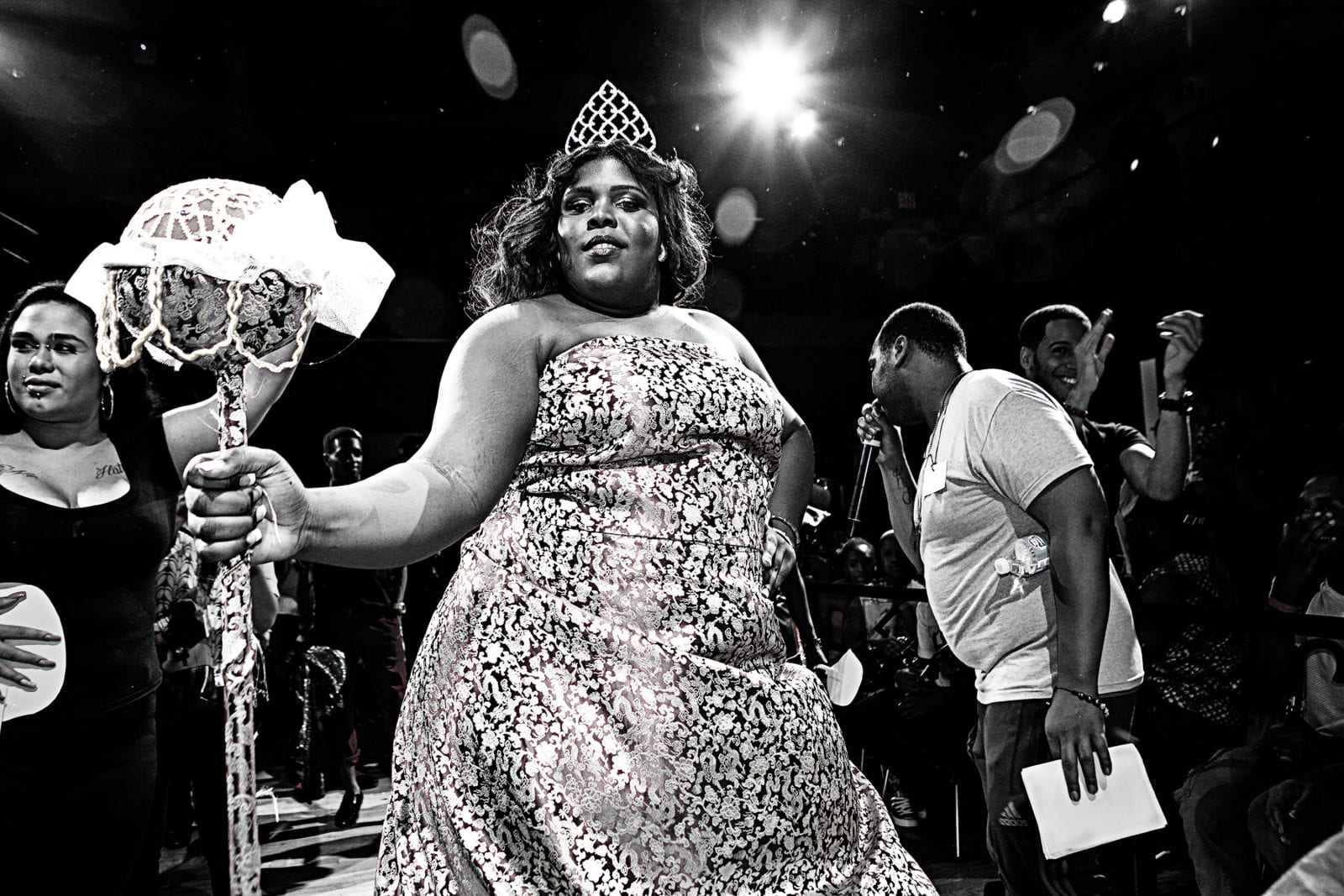
Neicy is an activist and actress. She walks the category Grand March with her Iconic House of Old Navy. Neicy is the house’s Godmother.
64 percent of transgender people make less than $25,000 per year. 41 percent of transgender people and 62 percent of queer homeless youth have attempted suicide. Today, Ballroom culture represents a safe space for transgender women of color.
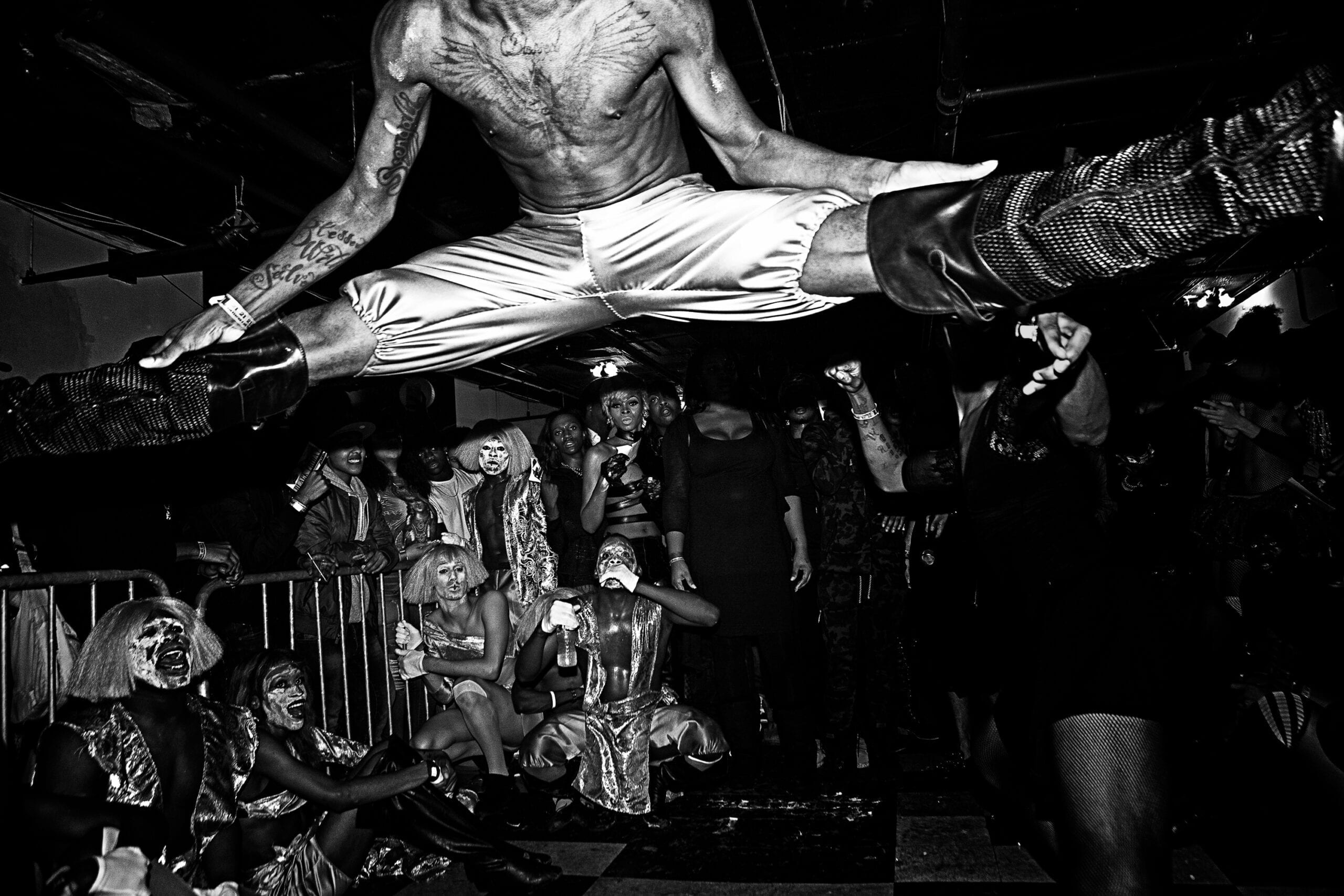
Near the end of 2015, a new clique had formed within the Kiki scene. They started calling themselves ‘Mattel,’ and stepped out to perform together for the first time at The Black Out Ball.
After that, the members formally christened themselves The Trendsetting House of Mattel. They are led by founding Mother Barbara Mattel. (center- standing). The Black Out Ball, presented by Founding Mother Barbara Mattel and Dickie Destruction AriZona. Dickie is the son of photographer Anja Matthes.
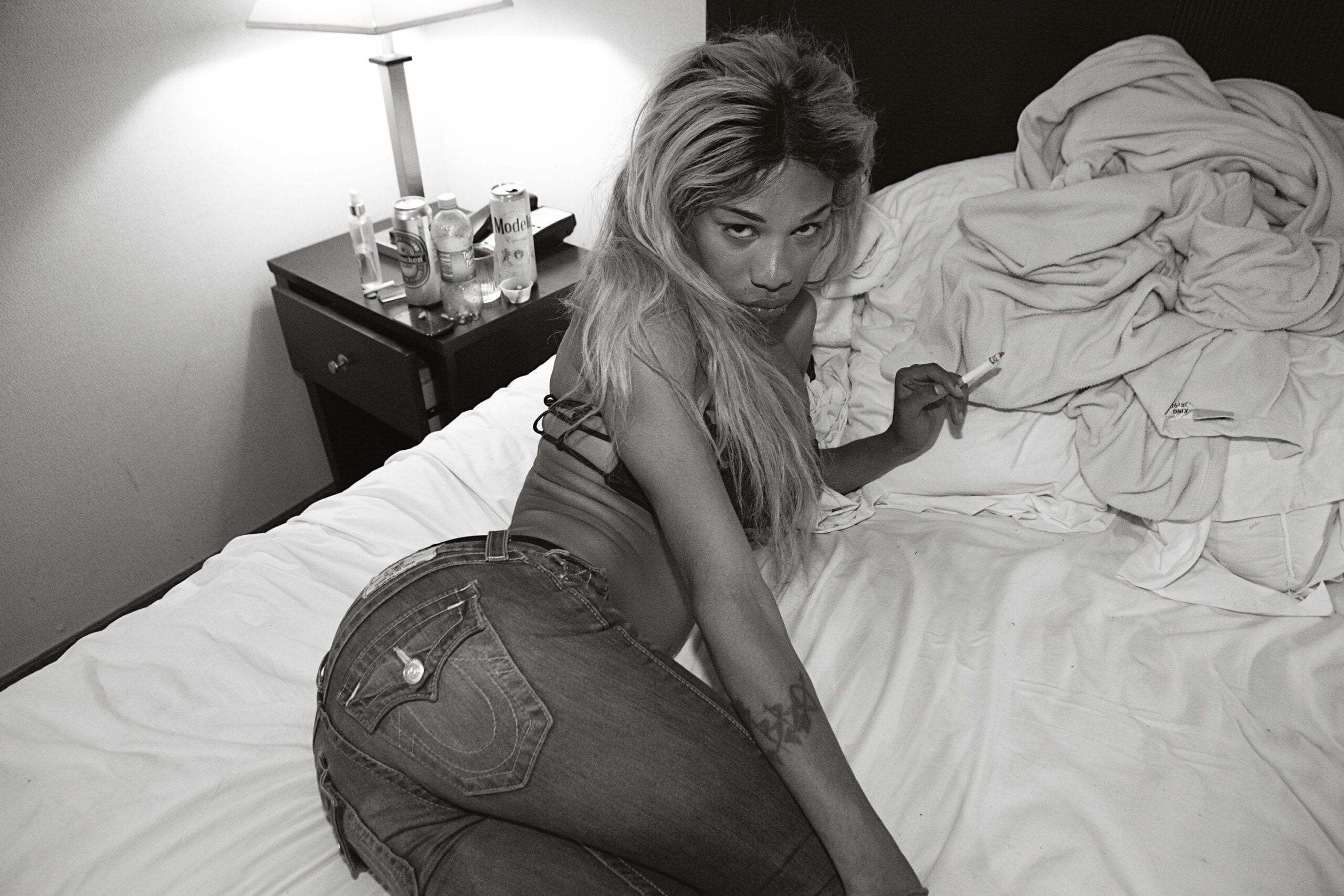
Holly has been homeless for many years. She lives in hotels which she pays for by seeing dates. Holly has been numerous times arrested because of sex work and was forced to stay in general population in male prisons.
Marsha P. Johnson was only 23 years old when she took part in the Stonewall Uprising. Tall, Black and slender, Marsha was a self-described ‘drag queen’ and an undisputed leader in the activist community. She was also homeless. She sold sex to survive and was arrested more than 100 times. Although Marsha was a central figure in the Stonewall Uprising, the civil rights victories that followed didn’t always extend to people like her. Instead, 50 years after the Stonewall Uprising, transgender women of color continue to face rejection from their families, homelessness and police harassment. They still have to fight to build safe spaces where they can express themselves authentically. A record number of over 27 transgender women have been murdered in the U.S. in 2018. The average life expectancy of black trans women is 35 years old

